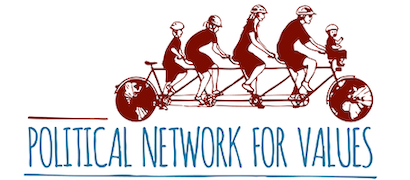Analysis • By Jesús Magaña | It was April 28, when the strike in Colombia began, which plunged the country into social unrest, blockades and violence. The initial reason for it was the tax reform proposal presented by the Minister of Finance in the last week of April, which was badly received by the whole society. As a result, on April 30 the proposal was withdrawn and not only that, but the Minister of Finance and his entire team resigned.
The protest, however, did not end, but worsened and the cities of the country were besieged by blockades preventing commercial movements and that of people, but the movement of urgent medical supplies and humanitarian assistance, too, during the peak of the COVID-19 pandemic.
Dramatic events, such as the death of an unborn baby in an ambulance that was blocked and attacked on the outskirts of Bogotá by the unemployed, as well as the harsh vandalism in the city of Cali and Popayán in the South of the country, the paralysis of the main ports of Colombia and the uncontrolled growth of COVID infections due to the continuous demonstrations have placed the country in a very serious situation. Furthermore, the continuous blockades of the public transportation system that causes thousands of citizens to walk from their homes to work tens of kilometers has made such a damage to the economy that its amount already approaches hundreds of millions of dollars.
During the demonstrations there have been confrontations with the police that have left several protesters and policemen dead and injured – this served as fuel to the fire of hatred and disagreement. The so-called National Strike Committee is unable to represent or unify all the protest groups, in fact, the Cauca indigenous people for example were totally unaware of it along with other movements. The demands of the Committee are disparate and contradictory, they ask for tax cuts, but at the same time they want the government to provide a universal basic salary of about $250. They also call for the annulment of a supposed Sanitary Law that has not yet begun to be discussed properly in the Congress. Some of the young people demand that former President Uribe resign, when he does not even hold any public office anymore.
On the other hand, an international campaign to discredit the Colombian police has been unleashed, encouraged by Michele Bachelet of the UN, Democrat Congressmen from the United States, celebrities, as well as Amnesty International, among others. Demolitions of statues has also been carried out, such as those of Sebastián de Belalcázar, the founder of Cali, Gonzalo Jiménez de Quezada, the founder of Bogotá or one of the heroes of independence, General Santander.
As you can see, the script is very similar to the protests a year ago in Chile and those held in the United States last year under the slogan Black Lives Matter. All of them is about to destabilize and achieve things by force.
It is worth seeing who is behind this. In total, the protest mobilizes 0.5% of the population of the 50 million inhabitants of Colombia. There is evidence that many of the people who attend the demonstrations are being paid. Indeed, Intelligence reports speak of the clear presence of drug traffickers who are financing leaders and groups that promote violence in demonstrations. The presence of the National Liberation Army (NLA) guerrillas and the new FARC is proven.
Additionally, there is information of the Venezuelan leaders of the blockades who are agents of the government of the Venezuelan dictator Maduro.
The presence of Cubans in the demonstration process is also clear – the second-in-command of the Cuban Embassy in Bogotá was expelled two weeks ago for promoting the protests in various groups. Finally, 7.000 false accounts have been detected with an average of 1.500 followers each that promote mobilizations and protests and that generate fake news to worsen hatred. These accounts are managed from Bangladesh, Korea and China.
The actors are clear, with diverse interests, but with a common objective: to weaken and, if possible, destabilize Colombia in order to gain power within the country and nullify and invalidate it in a regional context.
Today it is necessary more than ever to support the democratic institutions of the country and to make it clear that the Colombia’s problems must be managed through these very institutions established by the people and embodied by the Constitution.
On the other hand, it is utmost important that by pronouncements and international support all forms of violence are condemned. It should also be demanded that the blockades, that keep cities under siege, be lifted, because they violate the fundamental rights to life, alimentation and work.
Finally, pray for hatred be dismantled and for hearts and minds be opened to find the solutions to our problems together.
•
Jesús Magaña is director of the citizen platform Unidos por la Vida, from Colombia; and member of the Committee of Experts of the Political Network for Values.


